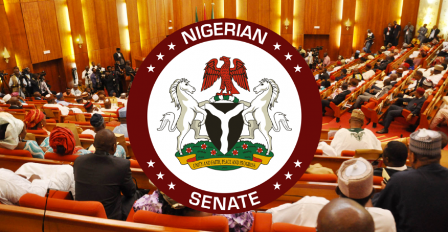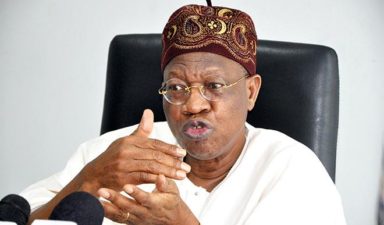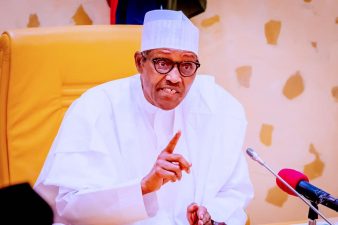Expectation of some sections of the Nigerian society that the Senate would initiate moves to override President Muhammadu Buhari’s veto of the Electoral Amendment Bill 2021 were dashed, as the upper legislative chamber Wednesday failed to dance along the line.
Senate President Ahmad Lawan, while giving a situation report after a closed session, said senators had a frank talk, where they agreed to suspend action on the president’s letter until adequate consultations were made.
President Buhari had, in the letter dated December 13, 2021, explained that his decision to withhold assent to the bill was informed by advice from relevant Ministries, Departments and Agencies (MDAs) of government after a thorough review.
The president said signing the bill into law would have serious adverse legal, financial, economic and security consequences on the country and would also impact negatively on the rights of citizens to participate in government as constitutionally provided.
On Tuesday, however, senators elected on the platform of the governing All Progressives Congress (APC) and opposition Peoples Democratic Party (PDP) had threatened to frustrate moves to pass the 2022 budget, if the veto of the bill by President Buhari was not upturned.
The lawmakers, who were unwilling to be swayed by appeals from leaders of the upper legislative chamber, had gone ahead to collate signatures in support of their planned override of the president’s veto. In all, about 81 signatures were reportedly collated with members of the APC spearing the move. Particularly, the APC members spearheading, are believed to be those, whose camp interest is affected by the president’s issues with the expulsion indirect primaries and imposition of direct primaries on the Act.
However, at plenary, on Wednesday, Lawan said the leadership of the senate would consult with their counterparts in the House of Representatives on the controversial subject when it reconvenes on January 18 after the Christmas break.
“The Senate in the closed session discussed the way forward and deliberated on matters relevant to the workings of the senate in particular and the National Assembly in general. The senate also resolved in the closed door session to discuss how to respond to the letter of Mr. President on the Electoral Amendment Bill. The senate consequently resolved to consult with the House of Representatives in January when the senate and the House will be in session.
“Presently, the House of Representatives has gone on recess and the constitutional provision is for the Senate and House of Representatives to jointly take the appropriate action. The senate also resolved to consult with our constituents during our recess in January. The senate believes that our constituents have a role to play as the major stakeholders in the laws that we make in the National Assembly.”
The signing of the Electoral Amendment Bill by President Buhari elapsed last Sunday 19 December, 2021, having clocked the mandatory 30 days within which the president must communicate to the National Assembly on his decision regarding any Bill passed by the parliament.
The bone of contention in the proposed amendment is the expulsion of indirect primaries from the existing Act by members of the two chambers of the National Assembly.




